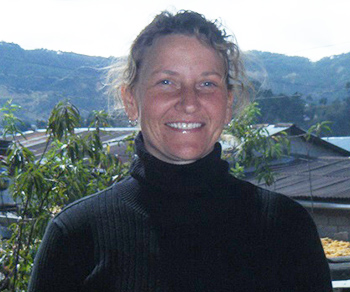
Guatemala Conference: Rebecca Clouser
USC Shoah Foundation Center for Advanced Genocide Research will host the international conference “A Conflict? Genocide and Resistance in Guatemala,” at the University of Southern California, Sept. 11-14, 2016. The scholars profiled in this series were each selected to present their research at the conference.
Washington University postdoctoral teaching fellow Rebecca Clouser will examine genocide denial in Guatemala and how it impedes the country’s development in her presentation at the conference.
Clouser is currently interested in exploring the intersections of development, national identity, and memory in Guatemala. As an entry point to her work, she utilizes the 2014 congressional passage of a resolution to deny that genocide occurred in Guatemala.
Clouser argues that the resolution frames social differences and social conflict as impediments to development of the country, which echoes long-standing discourses about development and national identity. She also evaluates the genocide denials issued by one of the more influential bodies in Guatemala – the Coordinating Committee of Agricultural, Commercial, Industrial, and Financial Associations (CACIF).
Rebecca Clouser will be one scholar speaking at a conference on Guatemala.
“I am interested in tracing the group’s involvement in past and present violence and the motivations behind the group’s denial of genocide,” she said. “I draw from works on memory studies, national identity formation, and critical development to explore and problematize the motivations, contradictions and implications of these types of memory/forgetting-work in the country.”
Clouser is excited about the opportunity to join in a discussion of genocide in Guatemala at USC Shoah Foundation’s conference in September – a discussion that she hopes will extend beyond Guatemala itself.
“This conference presents a unique occasion that brings together a variety of people, representing a wide array of perspectives, to focus on this important topic,” Clouser said. “Furthermore, I believe that the conference represents the opportunity to facilitate discussions that will also have implications for the study of and resistance to genocide at a broader level in other geographic contexts.”